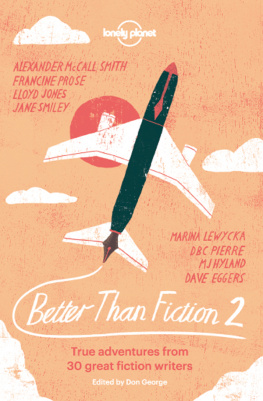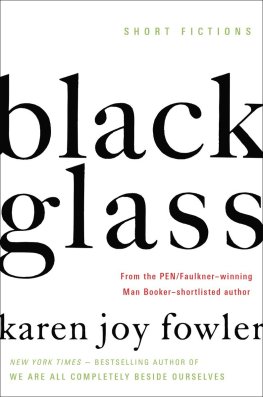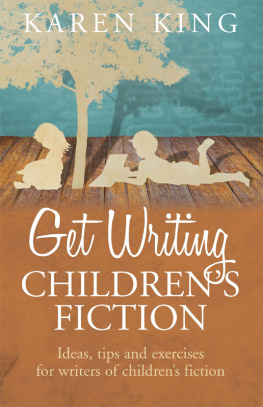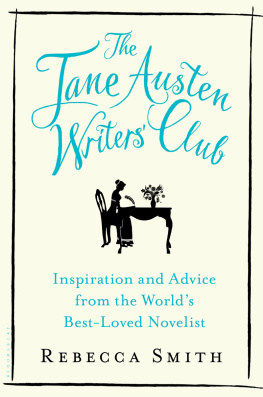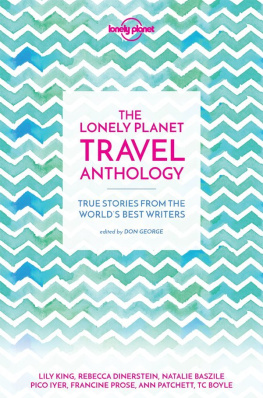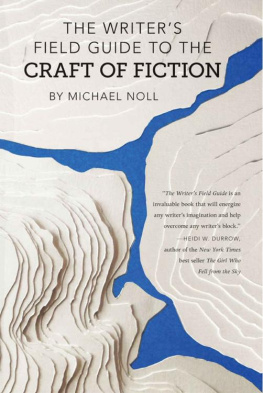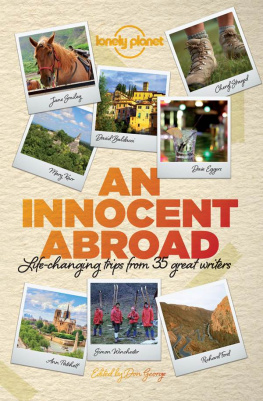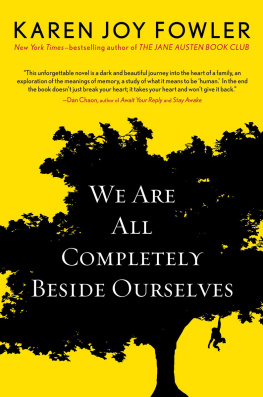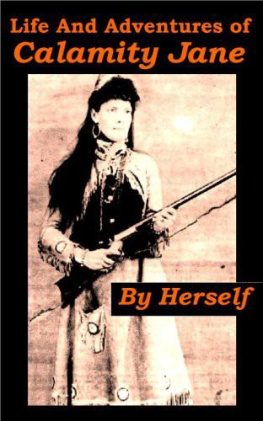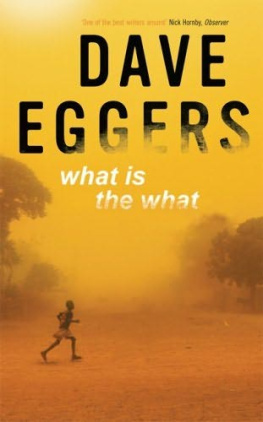Better than Fiction 2: true adventures from 30 great fiction writers / edited by Don George
LONELY PLANET and the Lonely Planet logo are trade marks of Lonely Planet Publications Pty. Ltd
All rights reserved. No part of this publication may be reproduced, stored in a retrieval system or transmitted in any form by any means, electronic, mechanical, photocopying, recording or otherwise, except brief extracts for the purpose of review, without written permission of the publisher.
Introduction
DON GEORGE

F or most of the year, Lonely Planets varied creations focus on the how and the where of travel; from guidebooks to apps, theyre designed to help travelers decide where and when to go, and how to get the most out of their journeys once they get there. But once a year Lonely Planet also publishes a special literary anthology that focuses on the why: the rigors and the rewards that travel confers.
Three years ago, we decided to devote that anthology to true travel tales written by acclaimed fiction writers. We called the collection Better Than Fiction, and it was a resounding success. We were so pleased with that delightful and inspiring spectrum of stories that we decided to reprise the theme for this years anthology.
At the beginning of the year I contacted a globe-girdling list of notable fiction writers, a marvelous mix of esteemed literary stars and emerging prize-winners, and asked if they would like to write a true tale of an especially memorable travel experience one that had profoundly moved, delighted, taught, and/or transformed them. I said we were open to virtually any kind of experience, in any setting around the world. Despite their demanding schedules, 30 of these writers responded with passionate descriptions of tales theyd love to tell.
While I was waiting for these stories to arrive, I began to worry that they might not meet the heady standards set by the first collection. But then the pieces began to trickle in, and I was transported. As I read each one, my picture-puzzle panorama of travels infinite possibilities wondrously expanded, piece by piece as yours will too, when you read them.
The tales assembled herein embody a moving microcosm of our modern world. The settings roam from Azerbaijan to Vietnam, with stops in Iceland, India, Italy, and Idaho, Samoa, Saudi Arabia, and Scotland, and some 20 more places around the globe. The themes vary widely as well, from youthful coming-of-age adventures, to middle-age misadventures and meditations on journeys past and to come, to wistful older-age homages to the most lasting of lifes road-lessons. And the subjects encountered along the way encompass sex, romance, the end of romance, surfing, fear, potential kidnappings, a hotel that isnt a hotel, hitchhiking, a mysterious sadhu, a Kazakh flash mob, wrong turns, right turns, an almost-arrest on an English train, dengue fever, laughter clubs, fire jumping, healing along the Boudin Trail, and canyon gazing. As I wrote: a moving microcosm of our modern world.
While these pieces vary invigoratingly in setting, style, and subject, they all manifest two unifying lessons. The first is that great fiction writers are also artful travel-tale-spinners: Just as they do when creating an imagined story, in recreating a lived experience, writers evoke a vivid sense of place with just a few finely chosen details, use dialogue to propel a plot and reveal the character of a person and a locale, and shape the arc of an adventure toward a meaningful end.
The second lesson is that whenever we venture into the world as travelers, our capacity for wonder, engagement, and growth is directly related to the capacity of our hearts. Wherever we may be in the world and in the pilgrimage of our lives, if we can wholeheartedly embrace the adventures we encounter, travel offers life-changing opportunities for discovery, renewal, connection and transformation.
Grounded in these truths, Better Than Fiction 2 celebrates the power of storytelling and risk-taking, and the peril and promise that travel presents. The ultimate message these artful, heartful tales all convey is that stepping into the world alchemizes adventures even the most imaginative novelist could never foresee and leads to resolutions that transmute our lives more rarely and richly than any of us could dream, even better than fiction too.
An Italian Education
KAREN JOY FOWLER

I n 1966, when I was sixteen years old, I went on a trip to Italy. This was my first trip to much of anywhere without my parents. It was billed as educational. We would be enrolled at the University for Foreigners in the lovely hilltop city of Perugia to learn whatever Italian we could pick up in four weeks. Students from several high schools were participating; my English teacher was coming, along with three other girls from my English class Carolyn, Janice, and Ellen, all friends of mine.
We students were lodged in a number of places, but on the cheap. My particular cohort of four landed in a convent. We shared a room on the second floor, spartan but bright, which looked down on the street below. There were bars on our bedroom windows, which we wondered about.
The nuns did not speak English and we, despite the dozen or so hours wed eventually put in, did not speak Italian. We called the Mother Superior the Hitchcock nun, because she resembled the creepy sort of painting whose eyes follow you around an empty room. Her expression soured visibly whenever she looked at us. The other nuns were friendlier and we had friendlier names for them.
Imagine a trip to Italy, only with terrible food. Perhaps we ate what the nuns always ate: dry rolls, fatty meats, tasteless cheese, bitter tea. One of the teachers complained every morning that they must be making a pretty penny off us. She eventually bought her own jam, taking it out of her purse ostentatiously, this jam that they should have provided, but didnt. We found the ugly-Americanism of this embarrassing, though in fairness to her, the food was truly terrible. I lived those four weeks on bread and water and a daily trip to the gelato stand.
So there we were, tucked up in the nunnery, and yet most of my memories of the trip have something to do with sex. Not real sex, but the rumor of sex, the specter, the shadow. I was sixteen years old. Sex came in all manner of guises.

This same teacher, the teacher with the jam, was often in a bad mood about something or other. Our guide, a young man from England, told me one day she was probably going through the change of life. He had a girlfriend back home and occasionally asked one or another of the prettier students to model some bit of clothing he was thinking of buying for her. He sang Frank Sinatra songs when we were on the bus, but even this did not diminish his appeal, because it was 1966 and all it took to be sexy was to be British.

